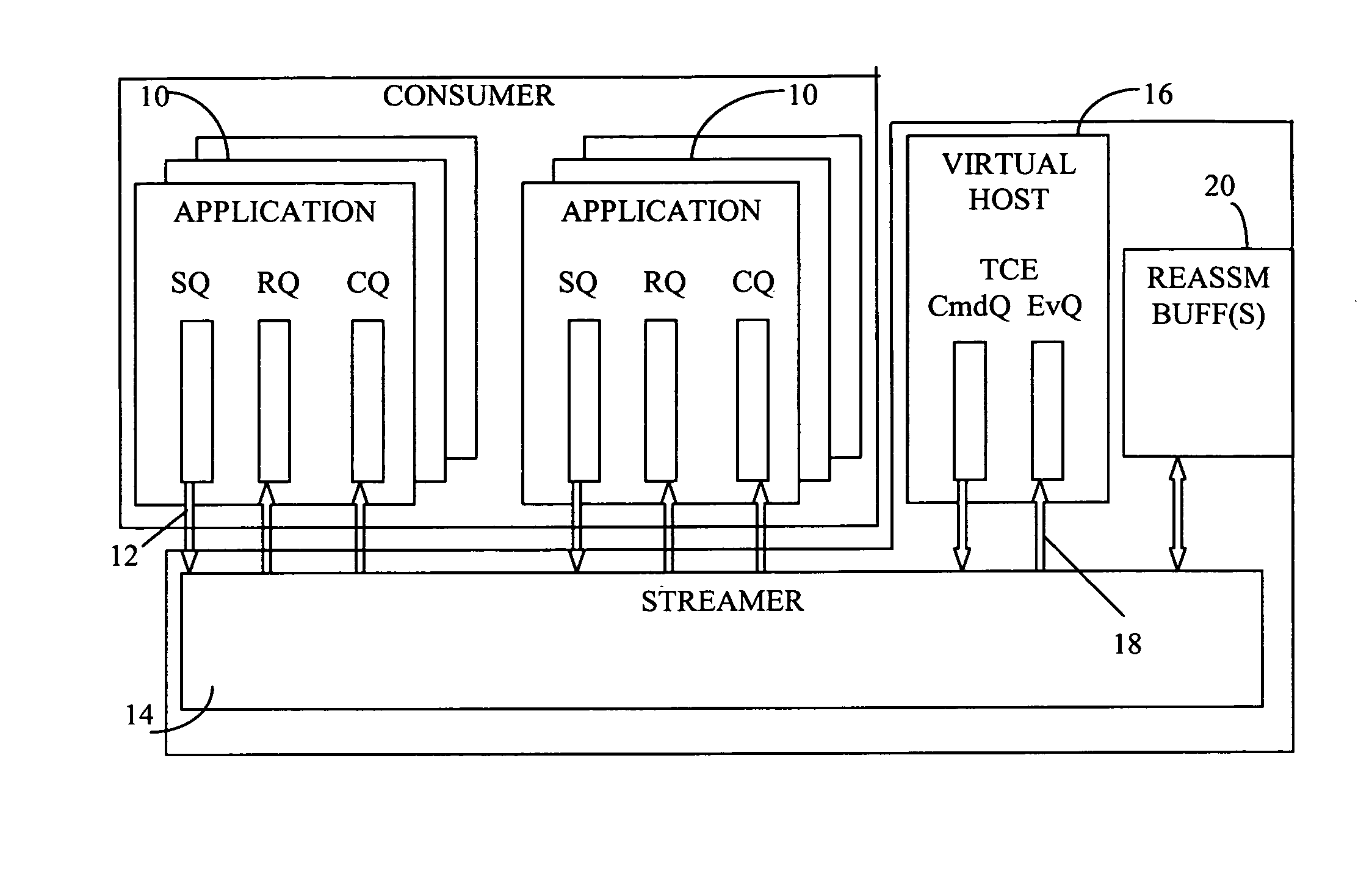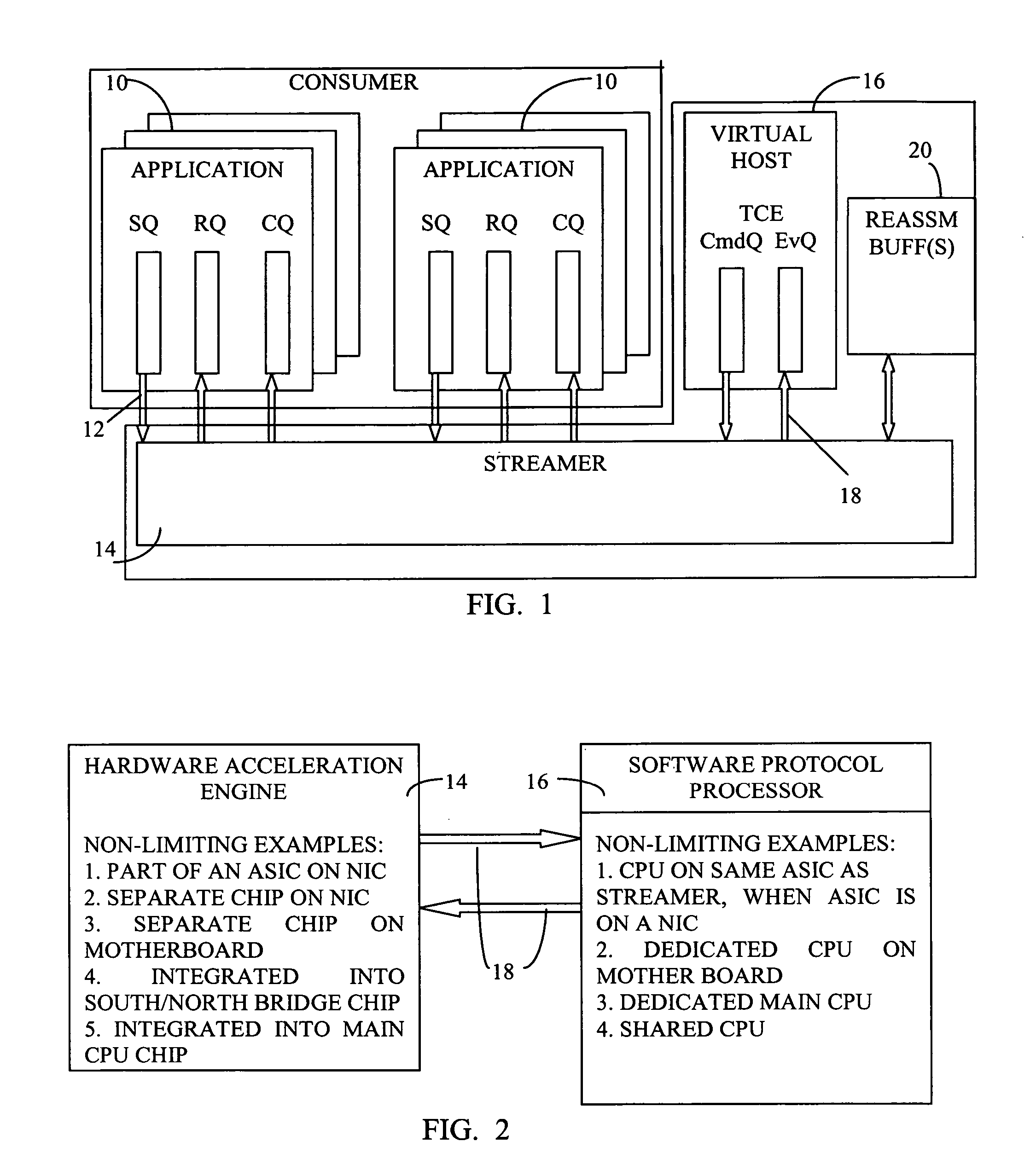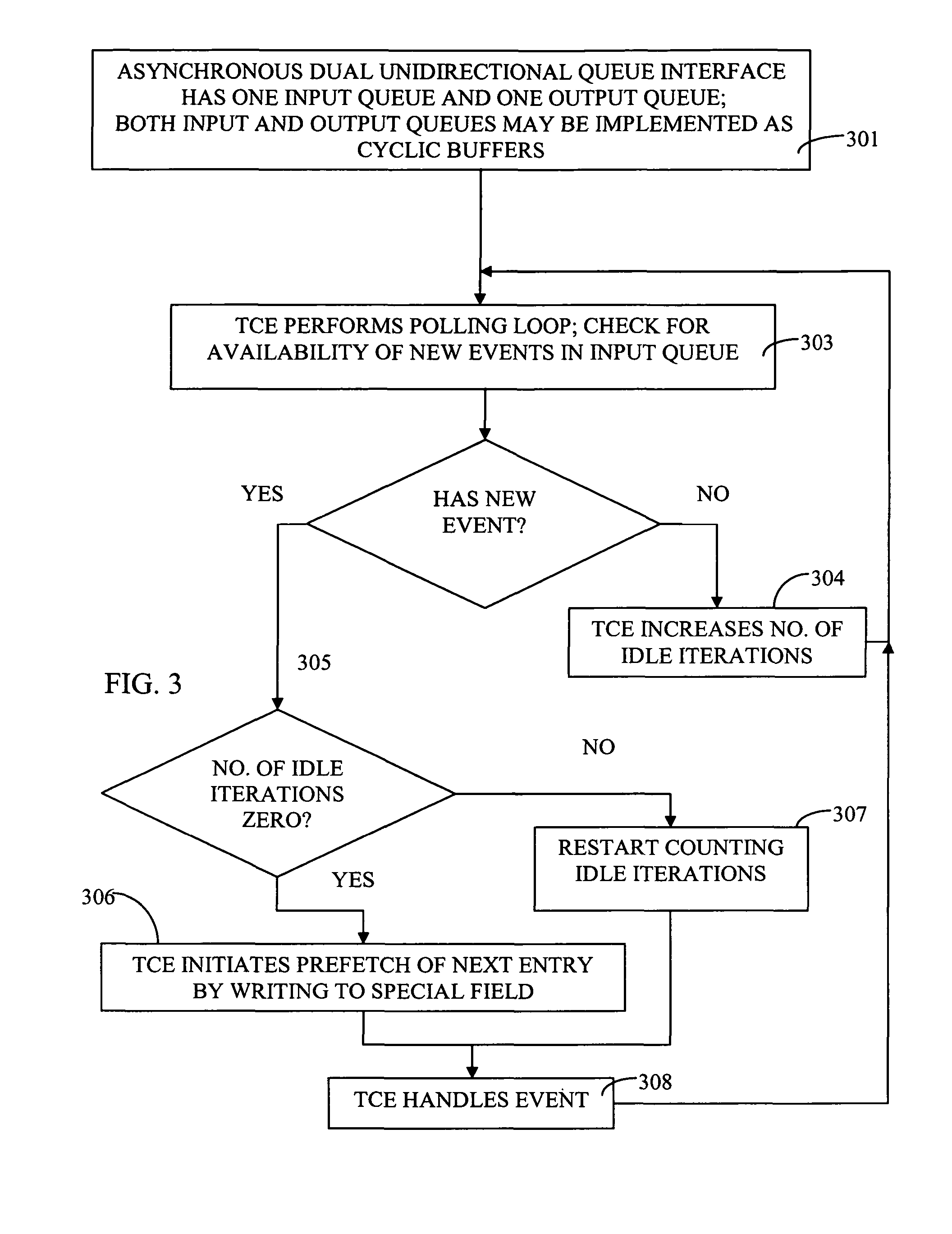Asynchronous dual-queue interface for use in network acceleration architecture
a network acceleration and dual-queue interface technology, applied in the field of network acceleration, can solve the problems of limiting the life-time of such solutions, limiting the performance benefits and performance of such solutions, and so as to preserve protocol implementation flexibility, maintain protocol modification, and achieve the effect of sacrificing performance and efficiency
- Summary
- Abstract
- Description
- Claims
- Application Information
AI Technical Summary
Benefits of technology
Problems solved by technology
Method used
Image
Examples
Embodiment Construction
[0015]Reference is now made to FIG. 1, which illustrates a network acceleration architecture in accordance with an embodiment of the present invention.
[0016]The network acceleration architecture may include consumer applications 10, which may run on a main CPU complex. The consumer applications 10 may use asynchronous queue based interface(s) 12 to submit work requests to a hardware acceleration engine 14, also referred to as a streamer 14. The interface(s) 12 may be in accordance with the RDMA verb specification.
[0017]As is known in the art, RDMA uses an operating system programming interface, referred to as “verbs”, to place work requests (WRs) onto a work queue. In brief, queue pairs may be used to transfer messages to the streamer 14 (e.g., memory regions in the streamer 14). Each queue pair may include a send work queue (SQ) and a receive work queue (RQ). For example, the consumer application 10 may generate work requests, which are placed onto a work queue as work queue elemen...
PUM
 Login to View More
Login to View More Abstract
Description
Claims
Application Information
 Login to View More
Login to View More - R&D
- Intellectual Property
- Life Sciences
- Materials
- Tech Scout
- Unparalleled Data Quality
- Higher Quality Content
- 60% Fewer Hallucinations
Browse by: Latest US Patents, China's latest patents, Technical Efficacy Thesaurus, Application Domain, Technology Topic, Popular Technical Reports.
© 2025 PatSnap. All rights reserved.Legal|Privacy policy|Modern Slavery Act Transparency Statement|Sitemap|About US| Contact US: help@patsnap.com



